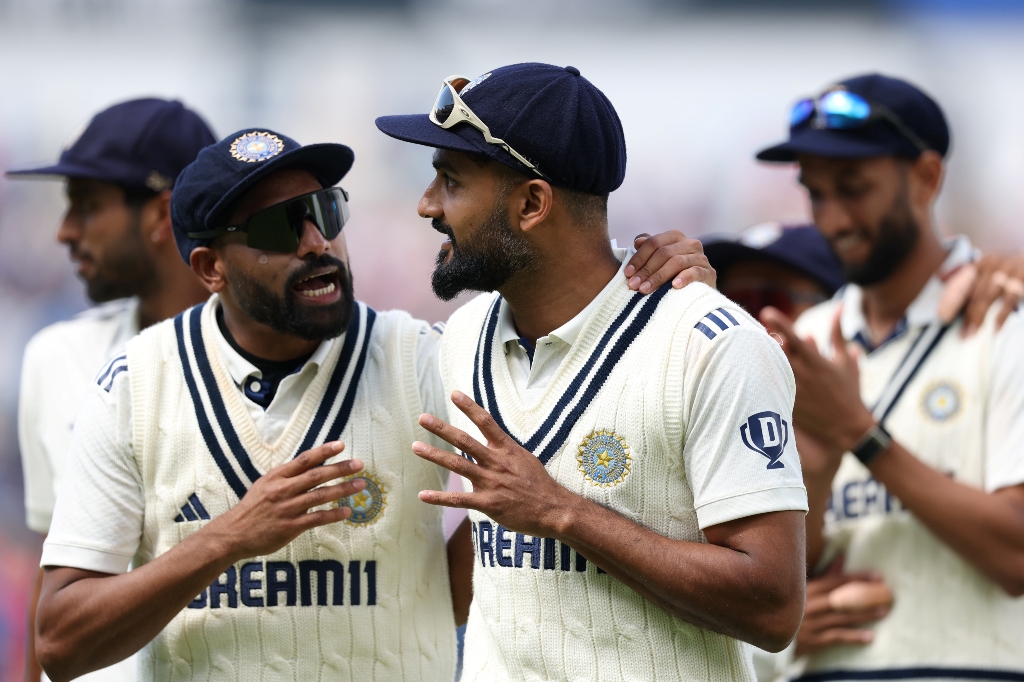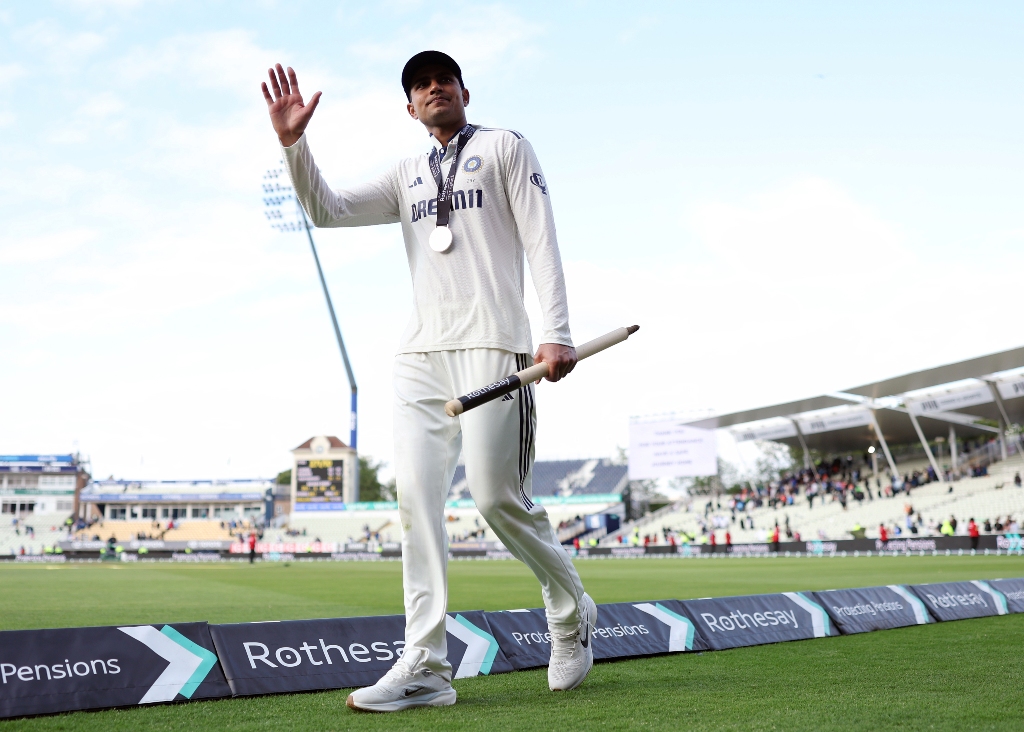India defeated England by 336 runs on Sunday, July 6, to win the second Test of the five-match series and level it 1-1. The match was played at Edgbaston in Birmingham from July 2 to 6.

Chasing a huge target of 608 runs, England were bowled out for 271 runs in the second innings. Akash Deep was the star with the ball on the final day, picking up six wickets for 99 runs.
The match was full of records. Here are all the records which were broken and set during the course of the five days.
India’s victory was their biggest in an away Test match in terms of runs. Their previous best was a 318-run win over West Indies in North Sound in 2019.
India also became the first Asian team to win a red-ball match against England at Edgbaston.
Shubman Gill became the first Indian captain to win a Test match at Edgbaston. Before him, eight Indian captains had led the team at this venue without a win.
Gill also became the first Asian captain to win a Test match in Birmingham. Legends like Imran Khan, Kapil Dev, and MS Dhoni could not achieve this during their careers.
He became the seventh Indian captain to win a Test match in England after Ajit Wadekar, Kapil Dev, Sourav Ganguly, Rahul Dravid, MS Dhoni, and Virat Kohli.
At the age of 25 years and 301 days, Gill became the youngest Indian captain to win a Test match overseas. He broke Sunil Gavaskar’s record, who was 26 years and 202 days old in 1976.

Gill scored a total of 430 runs in the second Test, breaking Gavaskar’s record of most runs in a Test match for India. Gavaskar had scored 344 runs against the West Indies in 1971.
His total of 430 is also the most runs scored by a visiting batter in a Test match. He broke the previous record of 426 runs by Mark Taylor of Australia.
Gill became the fifth batter in Test history to score 400 or more runs in a single match. The others are Graham Gooch, Mark Taylor, Brian Lara, and Kumar Sangakkara.
He became the first player in the world to score 200 and 150 runs in the same Test match.
Gill also became the third Indian captain to score centuries in both innings of a Test, after Sunil Gavaskar and Virat Kohli.
He is only the second cricketer after Gavaskar to score a century in his first Test as captain and a double century in the second.
Smiles, Hugs and Handshakes 👌#TeamIndia rejoice after completing their comprehensive win in the second Test 🎉#ENGvIND pic.twitter.com/bOhgOHLiW5
— BCCI (@BCCI) July 6, 2025
Gill matched Kohli’s record by scoring three centuries in his first two Tests as captain.
He became the first Asian captain to score a double century in SENA countries (South Africa, England, New Zealand, Australia).
Gill now holds the record for the highest individual score by an Indian captain in Test cricket with 269 runs, breaking Kohli’s 254.
His 269 also broke Sachin Tendulkar’s record for the highest individual score by an Indian in an overseas Test. Tendulkar had scored 241 not out in 2004.
Gill surpassed Sunil Gavaskar’s 221 to become India’s highest scorer in a Test match in England.
He became the third visiting captain to score more than 250 runs in a Test innings in England, after Bob Simpson and Graeme Smith.
Gill is also the third Indian to score a 250-plus in an away Test match after Virender Sehwag and Rahul Dravid.
He is now the sixth Indian captain to score a double century in Tests, joining names like MAK Pataudi, Gavaskar, Tendulkar, Dhoni, and Kohli.
At 25 years and 298 days, Gill is the second youngest Indian captain to score a Test double century. The youngest was MAK Pataudi at 23 years and 239 days.
He is the fourth Indian to score three centuries in three consecutive Tests against England, after Azharuddin, Vengsarkar, and Dravid.
Gill also became the third Indian captain to score back-to-back centuries in Tests against England, joining Vijay Hazare and Azharuddin.
He is only the second Indian captain after Kohli to score a double century in an overseas Test.
Gill is now the fourth Indian batter to score a century in his first two Tests as captain, following Vijay Hazare, Gavaskar, and Kohli.
He became the first Indian and fifth overall in the world to be part of four 100-plus run partnerships in a single Test match. The others are Hanif Mohammad, Graham Gooch, Mark Taylor, and Joe Root.
Akash Deep finished with match figures of 10 for 187 in 41.1 overs, the best by an Indian bowler in England. He broke Chetan Sharma’s record of 10 for 188.
Mohammed Siraj took six wickets for 70 runs in the first innings and became the first Indian to take a six-wicket haul in both England and South Africa.
Siraj is also the second Indian bowler after Jasprit Bumrah to claim five-wicket hauls in Tests in South Africa, England, Australia, and the West Indies.
Ravindra Jadeja, with scores of 89 and 69 not out, became the first player in the world to complete 2000 runs and take 100 wickets in the World Test Championship.
Yashasvi Jaiswal became the fastest Indian to score 2000 Test runs, achieving the mark in 21 matches. He broke Gavaskar’s record, who took 23 matches.
Jaiswal also equalled the record of Rahul Dravid and Virender Sehwag, reaching 2000 runs in 40 innings.
Jamie Smith scored an unbeaten 184 for England in the first innings and set a new record for the highest score by an England wicketkeeper in Tests. The previous best was 173 by Alec Stewart in 1997.
India crossed the 1000-run mark in a Test match for the first time in 93 years. They scored a total of 1014 runs in the Birmingham Test. Only five other teams have achieved this in Test history.
Rishabh Pant now holds the record for most sixes in an away country, with 24 sixes in 11 Tests in England. The second best is Ben Stokes with 21 sixes in South Africa.
The third Test between India and England will be played at Lord’s from July 10 to 14.


